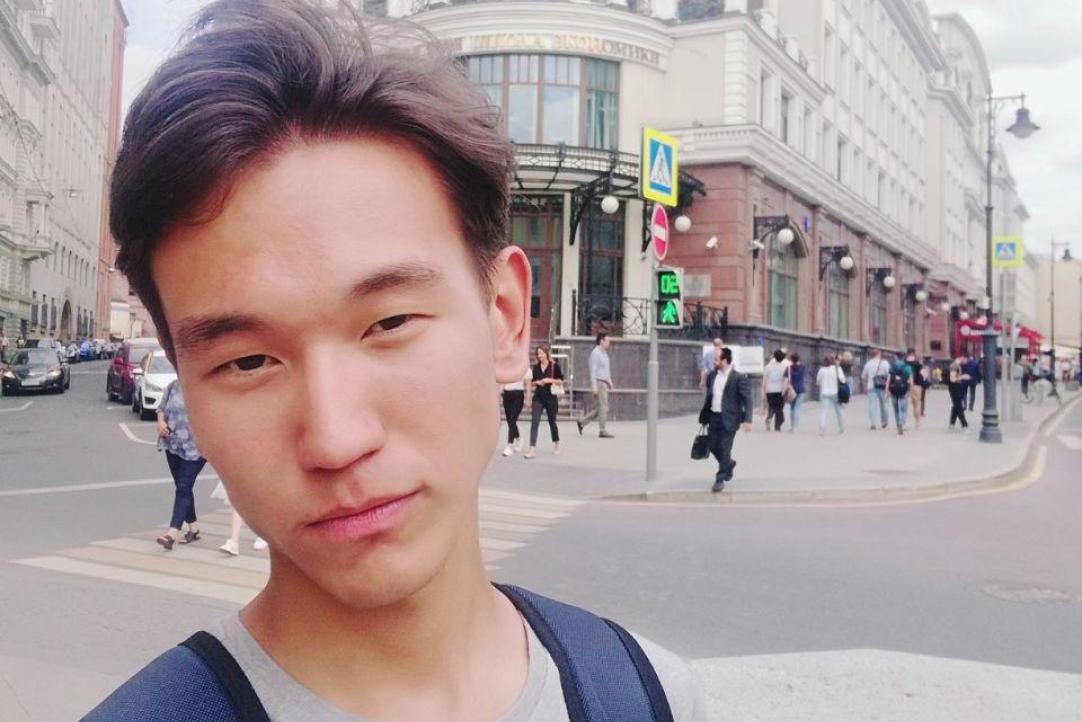'Try Something New and Don’t Be Afraid of Anything'

Rashid Mustafin came to the Moscow campus of the HSE University from Aksu, Kazakhstan. He is currently in his third year studying Foreign Languages and Intercultural Communication in the Faculty of Humanities. When the pandemic began, Rashid continued living in the HSE student dormitory. He spoke with the HSE News Service about his experience of getting into HSE and his time here as a student.
How I found out about HSE
I found out about HSE University when I was in the 9th grade. I visited the website, watched videos about students’ experiences there, and got in touch with some students on social networks. I liked the fact that the University has a well-developed community and a large number of student organizations. I chose the programme in Foreign Languages and Intercultural Communication because of my interests and background knowledge. The programme gives you the opportunity to study foreign languages while both doing research in linguistics and gaining practical skills.
In order to get into HSE, I had to take entrance tests. Fortunately, I didn’t have to fly to Moscow for them. The University arranged entrance examinations in a number of cities in Kazakhstan
A little later, I had a Skype interview with the programme managers. It didn’t take long before I learned the results. As early as March, they let me know that I had been admitted on a state-funded basis.
I lived a small town before entering university, so when I came to Moscow, it was quite unusual for me to spend so much time commuting to classes. Luckily, I got used to this quickly, and since I never encountered any other serious problems, I didn’t have to ask for any help or assistance.
Life at HSE
On the whole, I can say that HSE University has lived up to my expectations. Over the past two and a half years, I have worked as a professor’s assistant and a research assistant in one of the laboratories, successfully competed in a student Olympiad in design, tried out the role of course manager for first-year students, and taken part in an academic conference that was held in French. Our programme allowed me to meet some wonderful people, and I’ve made a lot of good friends.
Although we are studying remotely, I decided to stay in Russia during the COVID-19 pandemic to avoid any potential problems about getting back to university. Currently, I am living in our dormitory.
Who Should Apply to HSE
‘If you can study hard and you are interested in research, you will like studying at HSE University.’ That’s what I would say to the prospective students. I would recommend all hard-working students to choose our university: studying at HSE is both challenging and exciting.
Don’t hesitate to write to students of HSE University and ask them about the programme you are interested in. I receive a bunch of questions about our Programme every summer as well. Try something new while studying and don’t be afraid of anything.
There are a number of ways for foreign students to apply to HSE University: you can take the EGE exams or HSE entrance examinations, and participate in the HSE Global Scholarship Competition or the Rossotrudnichestvo portfolio competition. If one option proves unsuccessful, you can always pursue another. The main thing is to find the necessary information and to submit your application by the required deadline.
HSE University welcomes applicants from all over the world and offers not only different levels of study, but also different formats in English and Russian, online and offline. International applicants can apply for Bachelor’s and Master’s degree programmes in a separate admissions process for foreign applicants and receive scholarships with full or partial tuition fee coverage.
When applying to a Bachelor’s programme, including five English-taught programmes in Moscow, it is possible to submit international certificates you have received in English and mathematics, such as IELTS, TOEFL, A-Level and other international exams and they will be recognized by HSE University, so taking entrance exams in relevant subjects will not be required.
Undergraduate applicants can test their chances of admission now by taking mock tests. Master’s applicants also have the opportunity to get a preliminary assessment of their portfolio and communicate with their programme of choice online.

